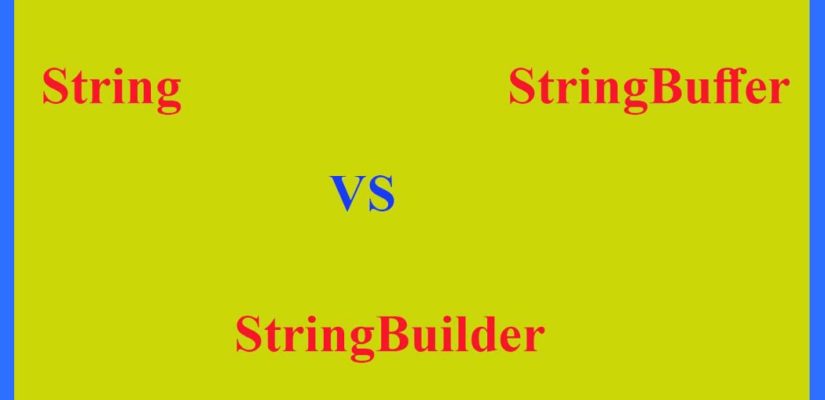
Everything about String Vs String Builder Vs String Buffer in Java Language
String is the most important class in Java and anyone works with Java programming uses String to print a text on the console by using System.out.println() statements. Many naïve Java developers are not aware that String is immutable. Every modification in String builds a new String object. For instance, when you get the substring, you get a new String, one you convert uppercase String to lowercase, a new String is created. Even after the removal of space by calling the trim() method, a new String is returned. In this article, we will discuss everything related to String Vs String Builder Vs String Buffer for web & mobile application development.
So, the major question is how to manipulate String in Java without making String garbage? StringBuilder and StringBuffer are the simple answer to this question. StringBuffer is basically an old class but StringBuilder is recently added in Java along with key improvements in Enum, Generics, and Autoboxing in Java.
No matter for which kind of application you have hire Java developers they will use the Java String class but if you work on the profiling of your application you will come to know that String is one such class that creates a lot of garbage because of temporary String created within the program.
What is String in Java Language?
1. String is immutable in Java offering a lot of benefits to the String class. The hashcode value is easy to cached making it a faster hashmap key and one of the major reasons of its popularity. String is final and can be safely shared between different threads without any additional synchronization.
2. When string is represented in double quotes they are termed as String literals. When two String literals are compared using equality operator “==” it returns true. Comparing an object is not a great concept in Java.
3. The “+” operator is overloaded for String and used to concatenate two string. Internally “+” operation is applied using either StringBuffer or StringBuilder.
4. Strings are backed up by character Array and described in UTF-16 format. This behavior can trigger memory leak in String because the same character array is shared between source String and SubString.
Differences between String and StringBuffer in Java
The main difference is String is immutable while StringBuffer is mutable hence you can modify a StringBuffer object once it is created without creating any new object. This mutable feature makes StringBuffer a perfect choice for dealing with Strings in Java.
It is easy for Java Development Services to convert a StringBuffer into String by its toString() approach. String vs StringBuffer is a major concern faced during the Java application development.
Difference between StringBuilder and StringBuffer in Java
StringBuffer is perfectly compatible with mutable String but has one disadvantage its slow operation. In JDK it offers a similar class named StringBuilder in Java which is basically a copy of StringBuffer but without any synchronization. Make use of StringBuilder whenever required to make it perform better than the StringBuffer class.
Developers can also use “+” to concatenate two strings as the “+” operation is basically implemented either with StringBuffer or StringBuilder. If you come across StringBuilder vs StringBuffer you will see that they are completely same and all API methods for StringBuffer are applicable to StringBuilder in Java as well.
On the other hand, String vs StringBuffer is quite different and their API is different as well, the same is true for StringBuilder vs String.
Frequently Asked Questions
1. What is strings in Java?
In Java, string is basically an object that represents sequence of char values. An array of characters works same as Java string.
2. Are strings mutable or immutable?
String is an example of an immutable type. A String object always represents the same string. StringBuilder is an example of a mutable type. It has methods to delete parts of the string, insert or replace characters, etc.
3. What is a Java Web application?
A Java web application is a collection of dynamic resources and static resources. A Java web application is easily deployed as a Web Archive file.
4. Why is Java used for Web applications?
Java is the first name that can be used for building complex web applications and for the software platform that used this programming language. It is widely used by development companies to build secure, robust and scalable web applications.
5. How much does it cost to develop a web application?
The cost of web application development is calculated on the basis of features and functionality needs to be integrated within.
Wrapping Up:
In summary here are several differences mentioned String Vs String Builder Vs String Buffer in Java:
- The String object is immutable in Java but StringBuffer and StringBuilder are mutable objects.
- StringBuffer is synced while StringBuilder is not making StringBuilder faster than StringBuffer.
- Concatenation operator “+” is basically implemented with the help of either StringBuffer or StringBuilder.
- Use String if you need immutability, use StringBuffer if you need mutable + thread-safety, and use StringBuilder in Java if you need mutable + without thread-safety.

